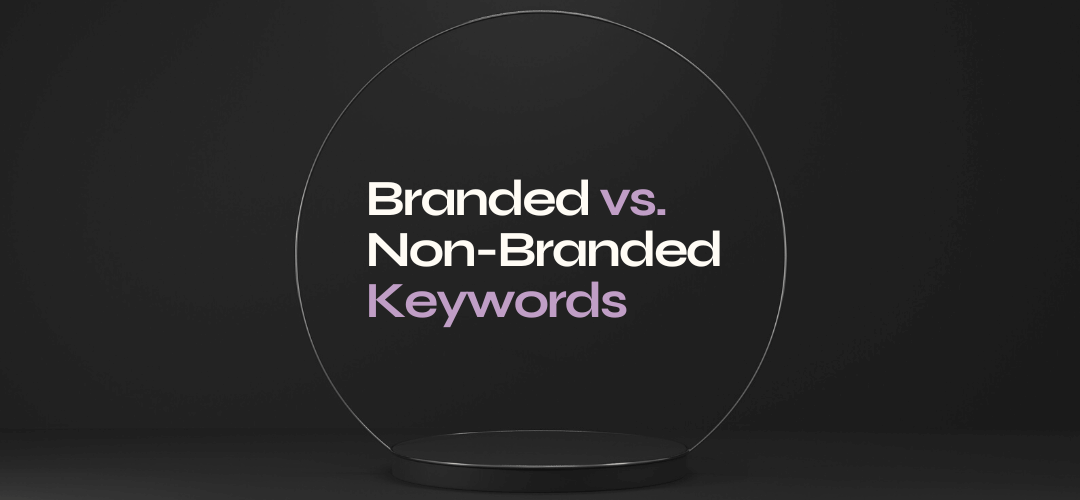
In the early days of digital marketing, keywords were the foundation of getting ranked in Google. While its algorithm has expanded to include many other factors, keywords are still very important for both SEO and paid advertising with Google Ads.
Let’s look at the two main types of keywords and how you should use them in your marketing strategy.
Brand vs Generic Keywords
There are two types of keywords — branded and non-branded.
Branded keywords contain the name of your company, your products or services, or something else that’s unique to you. For instance, the keyword iPhone Pro would be one of the branded keyword examples for Apple.
Having a brand name in the keyword doesn’t always mean it’s branded though. That same iPhone Pro keyword wouldn’t be considered branded for Best Buy or another company that sells the phone because it’s not unique to them.
Non-branded keywords are generic keywords that don’t reference any particular brand. “Cell phone” or “smartphone” are non-branded keywords since they could refer to any model and brand.
Factors to Consider Between Branded and Non-Branded Keywords
When deciding whether to target branded or non-branded keywords, there are a couple of factors to consider.
Competition
Non-branded keywords have more competition for the top ad positions than branded keywords. Because they’re generic, many more people search for them, especially in the early stages of the buyer’s journey.
A higher search volume means more potential traffic, which in turn means more digital marketers are likely to go after those keywords.
Fewer people search for branded keywords since that type of search means they already know what they’re looking for.
Conversion Rates
Conversion rates work in the opposite way. Your conversions will typically be higher with branded keywords since those searchers are probably familiar with your products or services when they land on your site.
After all, they went searching for you.
Visitors that arrive on your site after searching for a non-branded keyword might still be in the research phase of the buying process. It’s a lot tougher to convert them into a buyer if they don’t feel like they have all the necessary information yet.
How to Structure Your Branded Keywords Strategy
To get the best results with your digital marketing strategy, you should target both branded and non-branded keywords. But starting with branded terms will help your campaigns get traction faster.
Search Engine Optimization
Focus on ranking for your branded keywords first. Because there’s less competition, it should be a lot easier to rank in the top positions.
Once you’ve got those pages ranked, move on to non-branded keywords. It will probably take longer to see results but you’ll reach a much larger audience.
Google Ads and Other Ad Platforms
For PPC and other paid advertising, you should focus on both types of keywords with separate campaigns for each. As with SEO, it’s easier (and cheaper) to get top placements for branded keywords but the non-branded ones have a larger reach.
Where to Turn for Help With Your Digital Marketing
If you’re looking for expert help with your digital marketing, whether through SEO, Google Ads, or another channel, Seeyu Studios can help. We offer a range of digital marketing services and can help you create an effective keyword strategy.
Get in touch with us today to find out how we can help you grow your business online.


.webp)